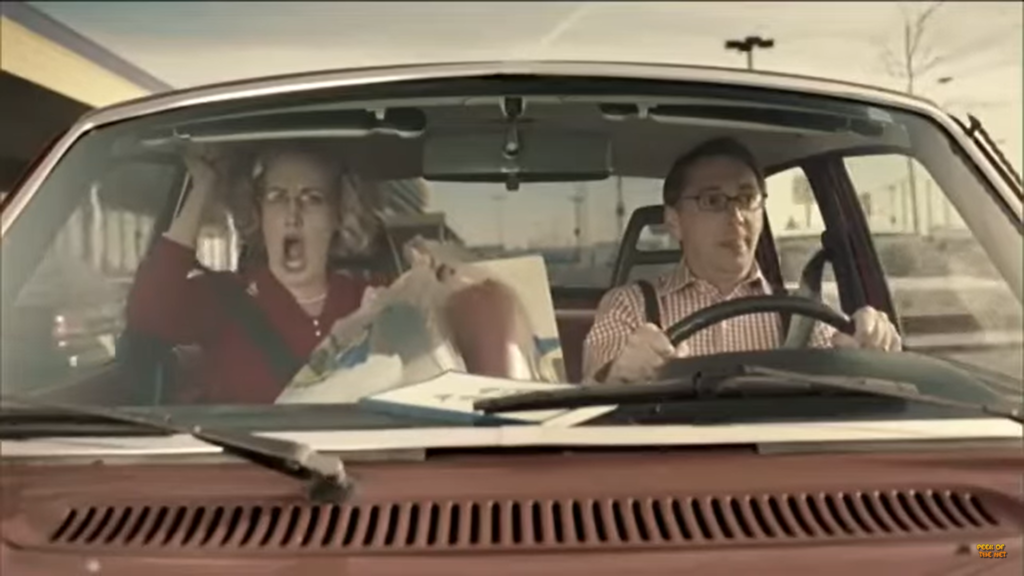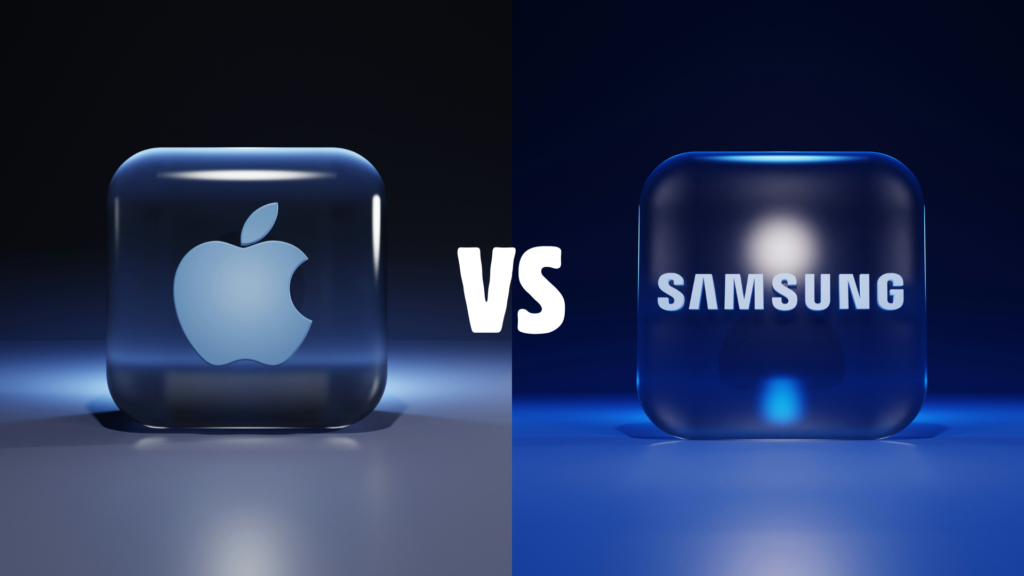In the world of advertising, few campaigns have left a lasting impression like IKEA’s “Start the Car!” commercial. This memorable ad first aired in 2004 and quickly became a cultural touchstone in Canada. With its humorous premise and catchy phrase, it perfectly encapsulates the thrill of discovering an incredible deal. As a result, it has transcended its original intent to become a beloved part of Canadian vernacular. The excitement portrayed in the ad resonates with consumers, making it a standout example of effective marketing.
The original advertisement, titled “It’s Not a Mistake,” features a woman who is ecstatic after receiving her surprisingly low receipt at IKEA. In her excitement, she rushes out of the store, urging someone to “start the car!” This simple yet engaging narrative captures the essence of bargain hunting and the joy that comes with it. Over time, this phrase has become synonymous with great deals, reflecting how powerful advertising can shape consumer behavior and language.
Recently, IKEA Canada decided to revive this iconic advertisement to celebrate its 20th anniversary. This revival not only taps into nostalgia but also reinforces the brand’s commitment to affordability. Jonelle Ricketts, Head of Marketing at IKEA Canada, highlighted that the phrase “start the car” has become emblematic of their fantastic deals. By bringing back this classic ad, IKEA aims to connect with both long-time fans and new customers who may not be familiar with its history.
The enduring popularity of the “Start the Car!” campaign showcases how effective advertising can create lasting emotional connections with consumers. As brands continue to explore nostalgia-driven marketing strategies, IKEA’s approach serves as a prime example of how revisiting successful campaigns can enhance customer engagement and loyalty. Through humor and relatability, IKEA has successfully woven itself into the fabric of Canadian culture, proving that great advertising can stand the test of time.
The Birth of an Icon: “Start the Car!”
The Concept and Execution
The original advertisement, known as “It’s Not a Mistake,” was created by the advertising agency Zig. This clever ad features a woman who, after receiving her surprisingly low receipt at IKEA, rushes out of the store. In her excitement, she shouts for someone to “start the car!” This humorous scenario effectively illustrates the thrill of finding an incredible bargain. The minimal dialogue combined with engaging visuals creates a memorable experience that resonates with shoppers everywhere.
The execution of this ad is noteworthy for its simplicity and relatability. The script is concise, allowing the visuals and the actress’s expressions to convey the excitement. As she dashes through the parking lot, viewers can feel her urgency and joy. This combination of elements makes the ad not only entertaining but also impactful. It captures a moment that many consumers have experienced when they stumble upon an unexpected deal.
Moreover, the ad’s comedic timing and relatable premise contributed to its success. It taps into a universal feeling of elation when one finds a great price on desired items. By showcasing this emotion, IKEA effectively connects with its audience. The ad’s ability to evoke laughter while promoting affordability is a testament to its clever design.
Cultural Impact
The phrase “start the car” quickly became more than just a line from an advertisement; it evolved into a cultural phenomenon in Canada. This catchphrase has become synonymous with scoring an amazing deal and has integrated itself into everyday conversations. Canadians now use it to express excitement over great bargains, reflecting how advertising can influence language and culture.
This cultural resonance was further solidified when the ad was recognized as one of the top 10 essential ads in Canadian cinema history by TIFF (Toronto International Film Festival). Such recognition highlights its significance beyond mere marketing; it has become part of Canada’s cultural fabric. The ad’s impact is evident in how it continues to be referenced and celebrated years after its initial airing.
Additionally, “start the car” signifies more than just a good purchase; it represents an exhilarating moment that feels almost too good to be true. This emotional connection is crucial in advertising, as it fosters brand loyalty and consumer engagement. By tapping into this sentiment, IKEA successfully created a lasting impression on its audience.
The cultural impact of IKEA’s “Start the Car!” advertisement showcases how effective marketing can transcend its original purpose. It has become a beloved phrase that evokes nostalgia and excitement among Canadians. As brands continue to explore ways to connect with their audiences, this iconic ad serves as a powerful example of how humor and relatability can create lasting cultural significance.
Revival and Modern Relevance
A Nostalgic Comeback
In 2024, IKEA Canada made the exciting decision to revive its beloved “Start the Car!” advertisement. This revival celebrates the ad’s 20th anniversary, a milestone worth commemorating. The updated version successfully retains the original’s charm while emphasizing IKEA’s ongoing commitment to affordability. Jonelle Ricketts, the Head of Marketing at IKEA Canada, noted that bringing back this iconic ad was a clever way to reinforce their dedication to lower prices. This strategy not only honors the past but also aligns with current consumer expectations.
The revival is significant as it connects with long-time fans who fondly remember the original ad. By tapping into nostalgia, IKEA effectively engages these customers while also reaching out to new audiences. The updated commercial serves as a reminder of the joy associated with finding great deals at IKEA. It highlights how nostalgia can be a powerful marketing tool that resonates across generations.
Moreover, this nostalgic comeback is part of a broader trend in advertising. Many brands are revisiting successful campaigns to create emotional connections with consumers. By reviving memorable ads, companies can leverage established brand loyalty while also attracting new customers. In this case, IKEA demonstrates how effective nostalgia marketing can be in today’s competitive retail landscape.
Consumer Engagement
The revival of the “Start the Car!” ad not only appeals to those who remember it but also introduces new audiences to its humor and message. This dual appeal enhances customer engagement significantly. By leveraging nostalgia marketing, IKEA creates an emotional connection that fosters brand loyalty among both old and new customers. The humor and relatability of the ad make it easy for viewers to relate to their own experiences of finding great deals.
Furthermore, the strategy highlights how revisiting successful campaigns can resonate across generations. Younger consumers may discover the ad for the first time, while older audiences can reminisce about their previous experiences with it. This cross-generational appeal is crucial for brands aiming to build lasting relationships with diverse customer bases.
Additionally, IKEA’s approach showcases how modern marketing can blend nostalgia with contemporary relevance. The updated ad reflects current consumer values while maintaining the essence of what made the original so memorable. As a result, IKEA successfully engages its audience in a way that feels familiar yet fresh.
The revival of the “Start the Car!” advertisement exemplifies how nostalgia can be effectively harnessed in marketing strategies. By appealing to both long-time fans and new audiences, IKEA enhances customer engagement and reinforces its commitment to affordability. This clever blend of past and present ensures that the brand remains relevant in an ever-changing market landscape.
The Power of Catchphrases in Advertising
Catchphrases, such as “start the car,” are invaluable tools in the world of advertising. They create memorable connections between consumers and brands, often becoming ingrained in popular culture. These phrases resonate deeply with audiences, making them more than just marketing slogans. Instead, they transform into shared experiences that evoke emotions and spark nostalgia.
The effectiveness of catchphrases lies in their simplicity and relatability. A well-crafted phrase can capture a moment or feeling that many people understand. For instance, “start the car” perfectly encapsulates the excitement of finding a great deal. This emotional connection encourages consumers to remember the brand and its message long after they’ve seen the ad.
Moreover, catchphrases can enhance brand recognition and loyalty. When consumers hear a familiar phrase, it can trigger positive associations with the brand. This recognition is crucial in a crowded marketplace where many companies compete for attention. By using memorable catchphrases, brands can differentiate themselves and create lasting impressions on their audience.
The power of catchphrases in advertising cannot be overstated. They forge strong connections between consumers and brands while becoming part of cultural conversations. As brands continue to innovate, memorable phrases will remain essential tools for engaging audiences and fostering loyalty.
Conclusion
The revival of IKEA’s “Start the Car!” advertisement highlights its lasting appeal and cultural importance. Originally aired in 2004, this ad has become a cherished part of Canadian advertising history. By blending humor with relatable experiences, it resonates with consumers on a personal level. As brands increasingly explore nostalgia marketing strategies, this campaign serves as a prime example of how revisiting iconic advertisements can engage both old and new audiences effectively.
Moreover, the phrase “start the car” has transcended its original context to become a cultural touchstone in Canada. It symbolizes the thrill of finding an incredible deal, making it more than just a catchy line. This connection to everyday experiences enhances the ad’s relevance and memorability. As IKEA continues to emphasize its commitment to affordability, the revival reinforces the brand’s identity while appealing to consumer sentiment. By doing so, IKEA not only celebrates its past but also strengthens its presence in today’s competitive market.
In conclusion, the resurgence of “Start the Car!” exemplifies how effective advertising can create lasting emotional connections with consumers. As nostalgia marketing continues to gain traction, IKEA’s approach offers valuable insights for brands aiming to connect with their audiences. By embracing humor and relatability, IKEA has successfully carved out a unique space in Canadian culture that will likely endure for years to come.




